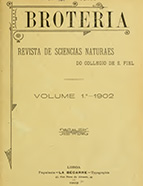

................................
For example, notable contributors include Carlos da Silva Tarouca, Manuel Gonçalves Cerejeira, Banha de Andrade, José Sebastião da Silva Dias, José Vitorino de Pina Martins, Eduardo Brazão, Lindley Cintra, Rómulo de Carvalho, Luís Filipe Barreto, António Matos Ferreira, Luís Filipe Thomaz, José Eduardo Franco, Eliane Cristina Deckmann Fleck, and Philippe Boutry. This list specifically highlights authors whose intellectual or academic work can be directly categorised as historiographical. However, the range becomes even broader when considering publications that intersect with historiographical activity or foster connections between historiography and other fields of knowledge. Examples include Joly Braga Santos, Orlando Ribeiro, Maria de Lourdes Belchior, Eduardo Lourenço, António Tabucchi, José Barata-Moura, and Fiamma Hasse Pais Brandão. This panorama complicates the delineation of a strictly historiographical project, as well as the analysis of a coherent theme or the identification of the most relevant discursive analytical resources. The themes, problems, and concepts addressed in Brotéria are highly diverse, reflecting the immediacy of the debates—the centenaries commemorated, varying in nature and chronology, which João Francisco Marques counted at nearly 200 in 2002—and the availability, interests, and specialisations of the authors, rather than being part of any pre-planned framework. This characteristic explains the relatively limited focus on reflections about historiographical practice itself, as seen in pieces like A historiografia, como género literário [Historiography as a Literary Genre], História da Historiografia [History of Historiography], and Horizontes da historiografia eclesiástica em Portugal [Horizons of Ecclesiastical Historiography in Portugal (on the Centenary of Fortunato de Almeida).
The second axis reveals Brotéria as a platform for disseminating historiographical research conducted by Jesuit historians, both Portuguese and foreign. Among the Portuguese contributors were Francisco Rodrigues (1873–1956), Domingos Maurício, Serafim Leite (1890–1969), Mário Martins (1908–1990), António Lopes (1926–2007), and Nuno da Silva Gonçalves (b. 1958), all members of the Academia Portuguesa da História . This group could also be extended to include others whose intellectual production was not primarily historiographical but who nevertheless influenced this field or reflected on it. For instance, Paulo Durão Alves (1893–1977), whose work was largely philosophical, did not shy away from considering historiographical issues, as in his Filosofia e História: o Saber Histórico: Sua Natureza e Problemática ( Filosofia e História: o saber histórico: sua natureza e problemática [Philosophy and History: Historical Knowledge: Its Nature and Problems]), published in the Revista Portuguesa de Filosofia [Portuguese Journal of Philosophy]. This journal had emerged from the separation of Brotéria 's "Philosophy Section," which ran from 1945 to 1947. Alves' contributions to Brotéria mainly focused on contemporary Portuguese literature from the first half of the 20th century, particularly reviews of "Catholic writers." Above all, Manuel Antunes, whose intellectual influence extended far beyond the journal's pages, added considerable prestige to its output. In addition to Portuguese Jesuit historians, Brotéria also benefitted from the contributions of foreign Jesuit historians, including Ernest J. Burrus, Hubert Jacobs, Joseph Joblin, Alfredo Verdoy, Josef Franz Schütte, Pierre Blet, Joseph Masson, Rafael Carbonell de Masy, and José Ferrer Benimeli. These contributions illustrate the journal's wide thematic scope and multidisciplinary approach. Jesuit historians often addressed topics outside the core of their research, as seen in articles like Mito do Marquês de Pombal: um comentário»; «Globalização, pobreza e exclusão social [Myth of the Marquis of Pombal: A Commentary and Globalisation, Poverty, and Social Exclusion], which demonstrate the breadth of Brotéria 's intellectual engagement.
This work is financed by national funds through FCT - Foundation for Science and Technology, I.P, in the scope of the projects UIDB/04311/2020 and UIDP/04311/2020.
